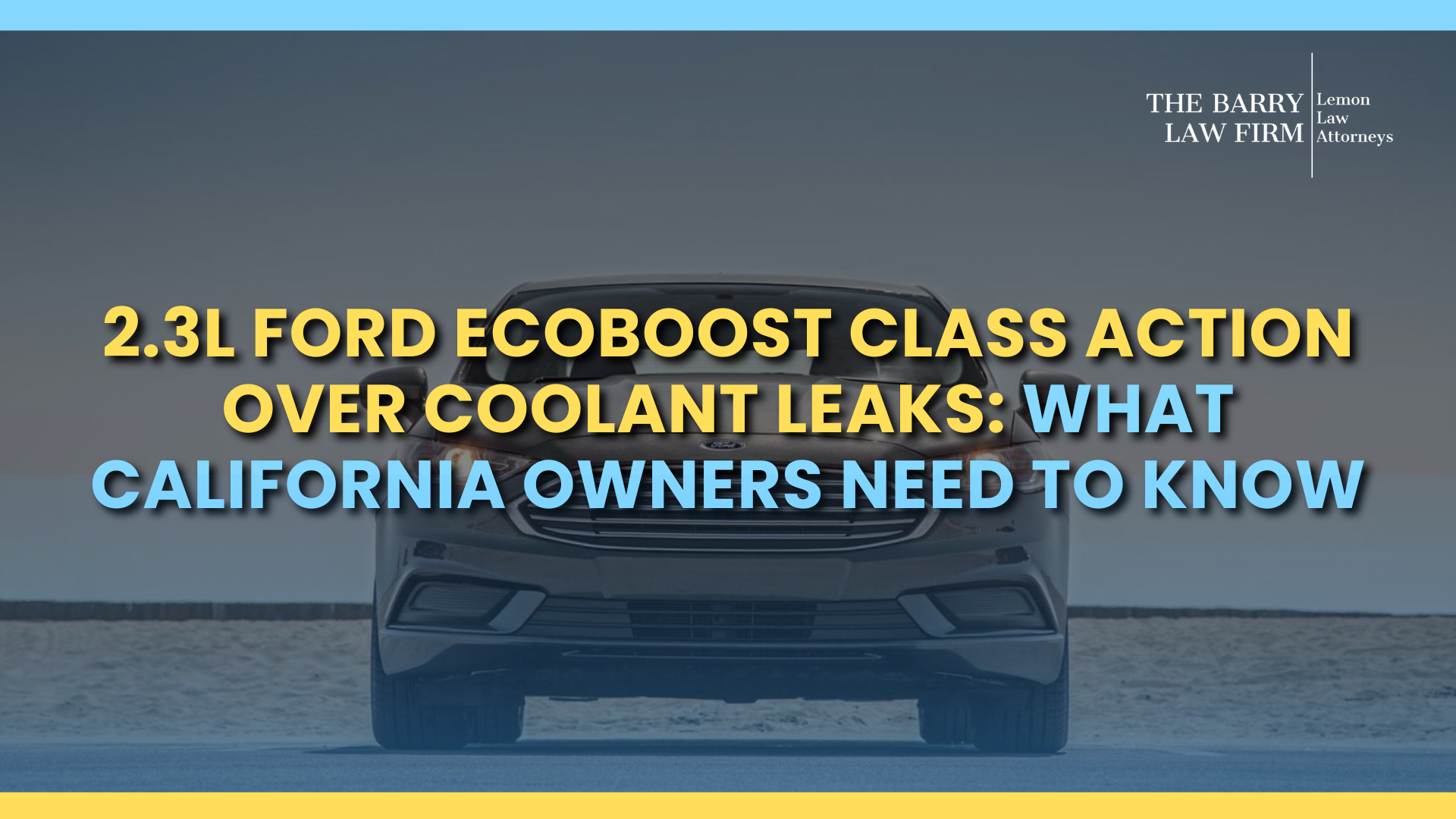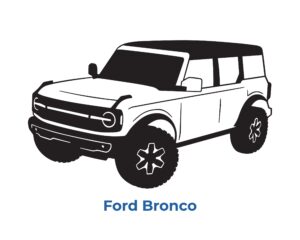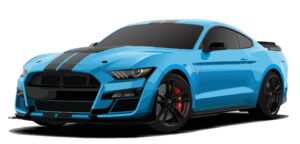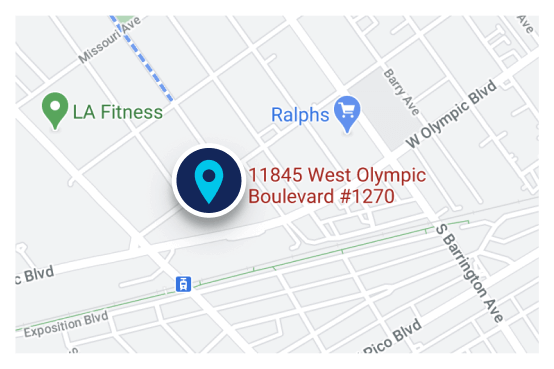
A new class action lawsuit filed in the U.S. District Court for the Eastern District of California alleges that Ford’s 2.3L I-4 EcoBoost engine suffers from a coolant intrusion defect that can lead to overheating, engine damage, and even fire risk. The case—Nelson, et al. v. Ford Motor Company—follows similar litigation involving other EcoBoost engines and covers popular models on California roads, including the 2015–2024 Ford Mustang, 2019–2024 Ford Ranger, 2016–2024 Ford Explorer, 2021–2024 Ford Bronco, 2015–2020 Lincoln MKC, and 2020–2022 Lincoln Corsair. According to the complaint, coolant can leak through grooves in the cylinder head and collect on the sealing surface, eventually entering the combustion chambers. As coolant levels drop, affected engines may overheat, misfire, or fail—sometimes after owners have already sought dealer repairs.
The allegations are serious because they target the basic integrity of the engine’s block, head, and sealing design. Plaintiffs contend these components permit coolant to migrate into the cylinders and that Ford’s attempted fixes do not address the root cause. For California owners who rely on these vehicles for commuting, work, and family duties, an engine that overheats or fails without warning is more than an inconvenience—it’s a safety and reliability problem that can leave drivers stranded, generate expensive repairs, and diminish resale value. Even if the engine doesn’t immediately fail, chronic coolant loss, repeat warning lights, and frequent top-offs can erode confidence in the vehicle and create ongoing costs.
What the Lawsuit Alleges
The lawsuit centers on an alleged design defect in the 2.3L EcoBoost engine’s block, head, and sealing interface. Plaintiffs say machining grooves in the cylinder head allow coolant to accumulate along the seal and eventually pass into one or more cylinders. When coolant burns in the combustion chamber, owners may notice white exhaust smoke, a sweet odor, rough idle, or a flashing check-engine light due to misfires. Over time, the engine can overheat as coolant levels drop, which may cause warped components, loss of compression, and in extreme cases a seized engine or thermal damage.
Importantly, the complaint asserts that some owners experienced repeat failures even after dealership interventions. The filing characterizes Ford’s responses—including installing low-coolant sensors, issuing software calibrations, or replacing engines with the same allegedly defective design—as “Band-Aid” measures that do not prevent recurrence. While the court will ultimately decide the merits, the claims underscore a pattern of symptoms that California drivers should not ignore: unexplained coolant loss with no visible external leaks, repeated overheating warnings, or persistent misfire codes (often P0300-series) tied to coolant intrusion.
Which Vehicles May Be Affected 
The putative class includes a broad range of popular Ford and Lincoln models equipped with the 2.3L EcoBoost across multiple years. In California, that means vehicles commonly used for commuting, rideshare, and outdoor travel may be implicated: the 2015–2024 Ford Mustang, 2019–2024 Ford Ranger, 2016–2024 Ford Explorer, and 2021–2024 Ford Bronco, along with the 2015–2020 Lincoln MKC and 2020–2022 Lincoln Corsair. Owners of these vehicles should pay close attention to coolant levels, engine temperature behavior, and any recurring check-engine lights or rough running, particularly on cold start. If you are uncertain whether your VIN falls within the alleged scope, ask your dealership to run a VIN-specific inquiry and check for any technical service bulletins, field service actions, or campaigns applicable to your vehicle.
Common Symptoms and Risks for California Drivers
California’s varied climate—from desert heat to coastal humidity and mountain cold—can amplify engine stress when coolant levels dip. Drivers often first notice a “low coolant” warning or find themselves topping off the reservoir more frequently without evidence of an external leak. Other red flags include white smoke on startup, a sweet smell from the exhaust, rough idle, intermittent misfires, or a rising temperature gauge under load. If coolant enters the cylinders and the level drops too far, overheating can occur quickly in stop-and-go traffic or on long grades, which not only risks roadside breakdowns but can also cause internal engine damage and expensive repairs. Prolonged overheating can warp the head, compromise gaskets, and contaminate the oil, setting the stage for cascading failures. The complaint also raises a potential fire risk in severe overheating scenarios—another reason to act promptly if warning lights or drivability issues appear.
What Owners Are Reporting—and What Ford Has Done 
According to the lawsuit, some owners report repeat problems even after dealer visits. The filing criticizes measures such as adding a low-coolant sensor, applying calibration updates, or replacing engines with units that allegedly share the same design. For consumers, the practical impact is repeat service appointments, days without a vehicle, and uncertain outcomes. Whether or not Ford ultimately issues additional guidance or a broader remedy, California owners should preserve their rights by documenting every symptom and repair attempt now. That means saving dated photos of coolant levels, capturing instrument-panel alerts, and keeping all repair orders that describe the complaint, diagnosis, and work performed. If a dealer cannot duplicate the concern, ask that the visit and your reported symptoms still be recorded on the repair order.
What You Should Do Right Now
If you suspect coolant intrusion, do not continue driving with an active overheat warning, visible steam, or a rapidly dropping coolant level. Schedule a diagnostic visit promptly and request that the dealer pressure-test the cooling system, perform a combustion-gas test if appropriate, and inspect for signs of internal seepage. Ask the advisor to include your full symptom history on the repair order, including frequency of top-offs and any white-smoke events on cold start. Keep copies of every invoice, loaner or rental record, and tow receipt. If you’re told to “monitor and return,” document mileage and coolant levels between visits. For vehicles still under warranty—or covered by any extended coverage—insist on warranty evaluation. If you are out of warranty, you may still have rights under California law if the defect began within the warranty period or if the manufacturer’s repair efforts have been unsuccessful.
Could This Defect Make Your Vehicle a Lemon?
Under California’s Lemon Law, a vehicle with a substantial defect that persists after a reasonable number of warranty repair attempts may qualify for repurchase, replacement, or cash compensation. Engine overheating, internal coolant loss, and repeat misfires are not minor annoyances; they go to the heart of safe, reliable operation. The law also considers vehicles that spend 30 or more cumulative days out of service for warranty repairs. Class actions and Lemon Law claims can interact in complex ways—class cases may seek broad relief, but an individual Lemon Law claim can often deliver faster, personalized remedies based on your specific repair history. A recall or service campaign does not erase your rights; if the problem continues after updates or replacements, your claim may strengthen. The key is a clean paper trail: repair orders, dates, mileage, technician notes, and any evidence of recurrence. If you have visited the dealer multiple times for coolant-related engine issues or endured lengthy downtime, it may be time to explore your legal options.
How The Barry Law Firm Can Help
At The Barry Law Firm, we specialize in helping California consumers take legal action against manufacturers when their vehicles fail to meet quality and safety standards. If your Ford Mustang, Ranger, Explorer, Bronco, Lincoln MKC, or Lincoln Corsair with the 2.3L EcoBoost has been in the shop repeatedly for coolant loss, overheating, misfires, or failed repairs, you may be entitled to a refund, replacement, or cash compensation under California’s Lemon Law.
- Lemon Law Expertise – We specialize in California Lemon Law cases and know how to hold manufacturers accountable.
- No Upfront Costs – The California Lemon Law requires the manufacturer to pay our fees. That means, at The Barry Law Firm, we will never charge you, no matter the outcome of your case.
- Proven Success – We have helped thousands of consumers obtain favorable settlements for their defective vehicles.
- Personalized Attention – We handle all legal paperwork and negotiations so you don’t have to deal with the stress.
- If Ford’s dealership or any software or repair measure hasn’t resolved your 2.3L EcoBoost coolant intrusion issue, you may have a case. Contact us to explore your options.
Conclusion
The 2.3L Ford EcoBoost class action highlights an alleged defect with real-world consequences for California drivers: unexplained coolant loss, overheating, misfires, and potential engine failure—sometimes even after dealer interventions. If your Ford or Lincoln equipped with the 2.3L EcoBoost is showing these symptoms, do not ignore them. Document everything, insist on written repair orders, and avoid driving the vehicle if it is overheating or running poorly. California’s Lemon Law exists to protect consumers from repeated, unresolved defects, and you do not need to wait for a class action to conclude before seeking individualized relief. Contact The Barry Law Firm for a FREE consultation—we will review your repair history, explain your rights, and help you pursue the outcome you deserve.



